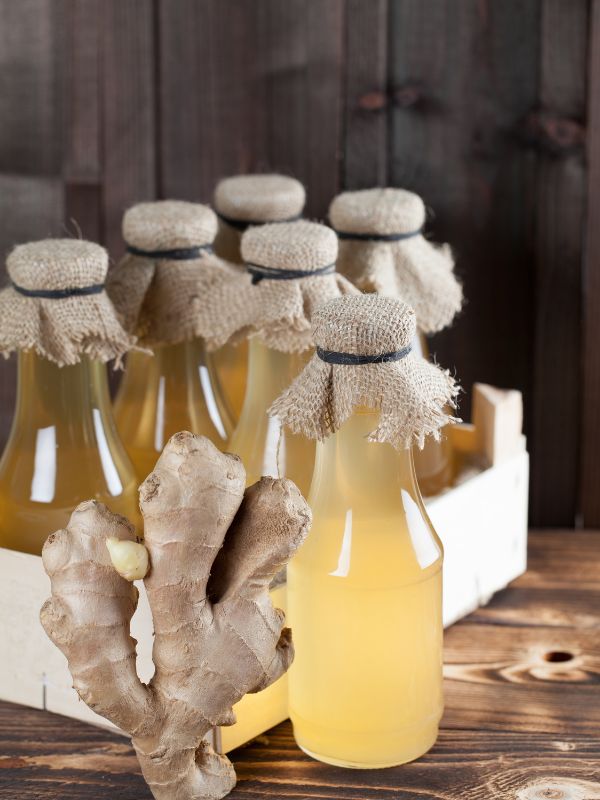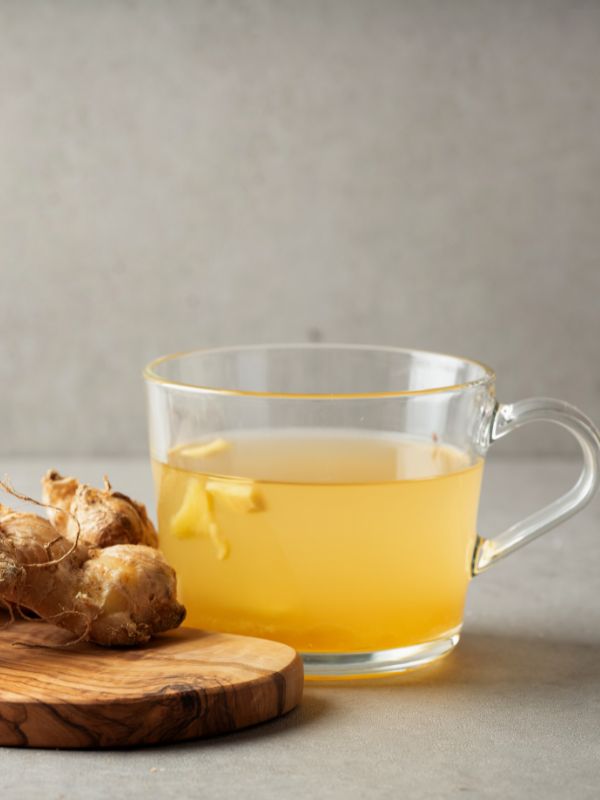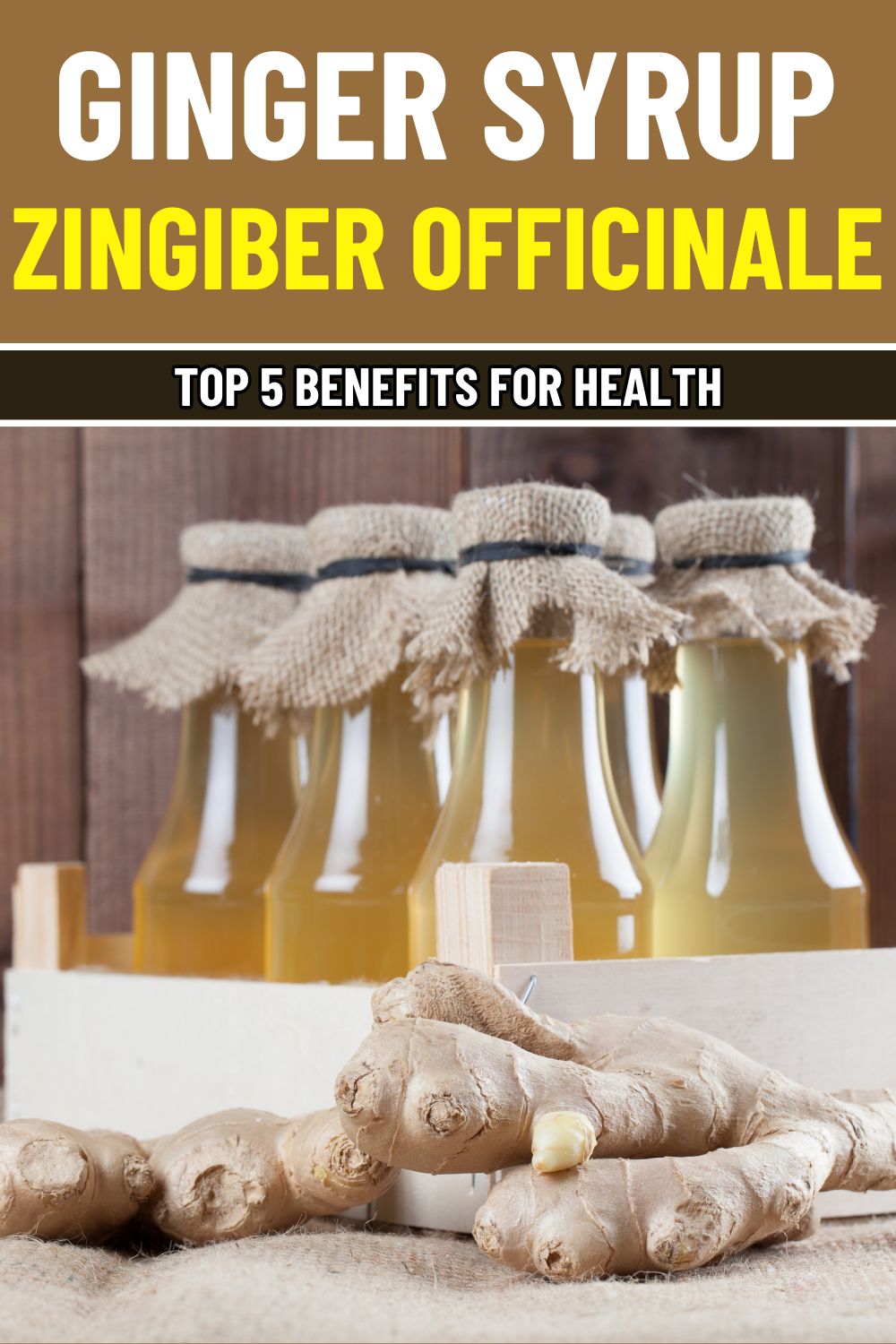Ginger (Zingiber officinale) is well-known for its healing properties and has been used for centuries in traditional medicine.
Originating from Southeast Asia, this powerful root is often celebrated for its anti-inflammatory, pain-relieving, and digestive benefits.
When made into a syrup, ginger becomes an even more concentrated remedy, providing a convenient and effective way to ease menstrual discomfort.
#1. Reduces Menstrual Cramps
Ginger syrup is widely known for its ability to reduce menstrual cramps by targeting the underlying inflammation that causes the uterine muscles to contract.
A study published in BMC Complementary Medicine and Therapies found ginger as effective as non-steroidal anti-inflammatory drugs (NSAIDs) in reducing pain during menstruation.
Consuming ginger syrup can offer natural relief from painful cramps, reducing the need for over-the-counter medications.

#2. Decreases Inflammation
Inflammation is one of the main contributors to menstrual pain, and ginger’s powerful anti-inflammatory properties help reduce it significantly.
Ginger contains active compounds like gingerols and shogaols, which are known to inhibit the production of inflammatory mediators like prostaglandins. This can reduce pain, swelling, and discomfort.
By incorporating ginger syrup into your routine, you can combat the inflammation that causes bloating, cramps, and overall menstrual discomfort.

#3. Relieves Nausea
Nausea is a common symptom of dysmenorrhea, often making the experience even more unbearable. Ginger is widely recognized for its ability to settle the stomach and relieve nausea.
Research shows that ginger can be highly effective in reducing nausea, with one study confirming its benefits in managing nausea related to pregnancy and motion sickness.
Ginger syrup not only helps alleviate cramps but also reduces nausea, providing a more comfortable menstruation experience.

#4. Improves Blood Circulation
Ginger is known to improve blood circulation, which is vital during menstruation, as restricted blood flow can contribute to painful cramps and discomfort.
Studies show ginger can help enhance uterine blood flow, which may reduce the severity of menstrual cramps by improving the delivery of oxygen and nutrients to the uterus.
Using ginger syrup can support healthier blood flow during menstruation, reducing the intensity of cramps and promoting a smoother cycle.

#5. Muscle Relaxation
The muscle-relaxant properties of ginger help ease the tension in the uterine muscles, providing relief from the spasms that cause menstrual pain.
Ginger has been shown to relax smooth muscles, which can help reduce spasms and cramping during menstruation.
Ginger syrup encourages muscle relaxation, making it an effective natural remedy for painful periods.

How to Use Ginger Syrup for Dysmenorrhea
- Direct consumption: Take one to two teaspoons of ginger syrup diluted in warm water or tea at the onset of menstrual cramps.
- As part of a tea blend: Add ginger syrup to herbal teas such as chamomile or peppermint for additional calming effects.
- Topical application: For localized relief, massage ginger syrup (mixed with a carrier oil) onto your lower abdomen to soothe cramps.
- Prevention: Start taking ginger syrup a few days before your period to reduce the severity of cramps and other menstrual discomfort.

Cautions and Precautions
While ginger syrup is generally safe, it can cause mild side effects such as heartburn, indigestion, or diarrhea, especially when consumed in large quantities. Start with smaller doses and monitor how your body reacts.
Pregnant and breastfeeding women should consult a healthcare provider before using ginger syrup, as high doses may not be safe.
Ginger has natural blood-thinning properties, which may interact with blood-thinning medications. If you are on anticoagulants or preparing for surgery, consult your healthcare provider before using ginger syrup regularly.
Excessive consumption of ginger syrup can lead to gastrointestinal issues, so it’s best to use it in moderation.
Disclaimer
This article is for informational purposes only and should not replace professional medical advice.
Always consult with your healthcare provider before adding significant amounts of ginger syrup or any new supplement to your diet, especially if you have underlying health conditions or take medications.

How Ginger Syrup Can Help Relieve Menstrual Cramps Naturally
